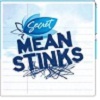
Procter & Gamble’s Facebook campaign for its Secret deodorant smartly matched the brand to a key issue facing its target audience- cyber bullying. The “Mean Stinks” used video and social media in an ‘always-on’ approach that resulted in a 9% uplift in sales. Procter & Gamble chose to advertise on Facebook to generate awareness for Secret deodorant’s “Mean Stinks” program and selected a female audience likely to be receptive to the campaign. The ad featured a confessional-style video of a girl admitting that she had bullied others, realising the damage she had caused, and apologising. In the 26 weeks after the Mean Stinks campaign launched, Secret experienced a 9% increase in US sales and an increase in engagement with its Facebook Page.
More on this case study…
Brand: Procter and Gamble | Country: USA| Sector: FMCG Healthcare | Objective: build brand engagement | Agency: Leo Burnett, IMC2, Marina Maher Communications, UEG, iProspect | Format: Facebook, Video, YouTube, social media
The campaign was launched in January 2011 on the Secret Facebook page, and also features a Mean Stinks Facebook page, with a “Good Graffiti” app that allows fans to pass along positive messages to friends.
The Mean Stinks Facebook page also includes:
• a referral page for counseling centers
• a section where women can upload video apologies or complaints about past acts of meanness
• a store that sells T-shirts with anti-bullying messages
• links promoting Facebook-commerce sales of other Secret and other P&G products
The campaign has since expanded to include a publicity tie-in with Amber Riley of “Glee” and an iAd campaign, and has seen impressive results through engagement and brand sales.

Results
The Mean Stinks campaign increased fan engagement on the Secret main fan page by 24 times at launch, while the “Good Graffiti” app has been used to pass along 32,000 positive messages to friends since launch.
The Mean Stinks standalone page has nearly 230,000 fans, with 50% of the ‘Mean Stinks’ Facebook fans engaging in the community regularly (viewing the page, wall posts or commenting or liking something from the page at least once per month), according to P&G.
The campaign also led 10,000 women to trigger $1 donations to Pacer’s National Bullying Prevention Center by requesting coupons online (including at the Facebook page) or downloading iAd wallpapers
On mobile, the Mean Stinks iAd engaged 23,000 women over the first ten days after launch (“generating tap-through rates 50% ahead of average for iAd,” according to P&G.
The secret to its success?
P&G matched their brand to a lkey concern of their target audience of teen girls. The most recent U.S. Department of Justice report shows 30% of female students grades 6 - 12 were bullied at school or cyber bullied during the 2009 - 2010 school year.
What’s more, the long term ‘always-on’ approach meant fans kept coming back for more. The company chose a subject that resonates with its consumers, created a catchy slogan, and filled its Facebook page with ways for fans to really engage with the content and to share their experiences with others. The Mean Stinks page hit a chord among users, enough for them to keep coming back to view or share more content on a regular basis.
Watch the video case study here:
View the promotional video here;